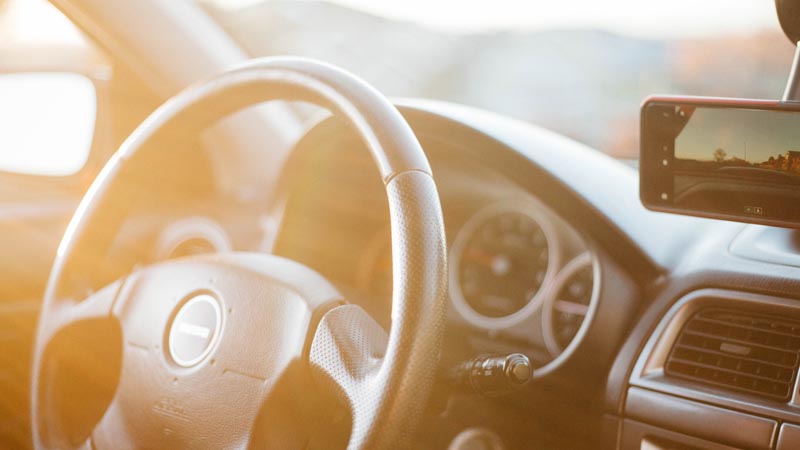As Schwan & Associates gears up for a busy tax season, we prepare for inevitable questions about what expenses can (or should) be claimed for the best possible return. Today we want to offer an answer to one of our most frequently asked questions: Which vehicle expenses can I claim on my taxes?
What you can and should claim depends on a few factors. Whether you drive your own car for work, use a company vehicle, or are self-employed, here are some tips for steering your way to the best possible tax return.
When you drive your own vehicle for work
Whether you’re a business owner, a partner, or an employee, if you use your personal vehicle for work, you can claim tax deductions as long as you meet both of the following criteria:
- You’re regularly required to work away from the office. If you visit clients or take meetings in other cities, for example, you fit the bill.
- You pay the costs of work-related travel out of pocket. If you are an employee, your employer will need to sign a T2200 form confirming this. If your company reimburses you or pays you a car allowance, you’re in a different boat. More on that later…
If both of these criteria apply, you’re eligible for deductions related to costs incurred while driving for work, including gas, insurance, registration fees, repairs, and general maintenance. You can also claim a percentage of leasing payments or of the capital cost of a car, as well as the interest paid on a loan to buy it.
These deductions depend on your work-to-personal use ratio. For example, if you have $1,000 in car-related expenses and you use your vehicle for work 50% of the time, you can claim $500.
It’s worth noting that a commute to and from work does not count as work-related travel.
When you get paid to drive your own vehicle
Double-dipping is not allowed. If your employer reimburses you for work-related driving expenses or pays you an automobile and motor vehicle allowance, you can’t claim vehicle expenses on your taxes.
However, there is one distinction: the allowance paid by your employer must be based on a reasonable rate per kilometers driven for it to be considered tax-free. For 2018, the CRA considers the following reasonable:
- $0.55 per kilometer for the first 5,000 kilometers driven.
- $0.49 per kilometer driven after that.
(An additional $0.04 per kilometer for travel in the Northwest Territories, Yukon and Nunavut.)
So, if your driving costs are higher than your allowance, you can report the allowance as income and deduct your expenses.
When you drive a company vehicle
If your employer provides you with a car or vehicle, that’s considered a taxable benefit. Two ways you might be taxed:
A standby charge: Meant to cover your personal use of a company vehicle, this charge is usually 2% of the original cost of the vehicle, or two-thirds of the lease costs (including PST and GST or HST) for each month of the year you have access to it.
You can get a reduction on this benefit if you prove you’re using the vehicle for business more than 50% of the time. If you only use the vehicle for work and leave it at the office at the end of the day, this charge can be waived entirely.
An operating benefit: This reflects the personal portion of any operating expenses paid by your company. It’s calculated based on a prescribed amount per-kilometer rate of personal use ($0.26/km for 2018) minus any costs you’ve reimbursed to the company.
You can bypass this charge completely by reimbursing your employer for all car-related expenses (such as oil changes and maintenance).
When you’re self-employed
If you are your own boss, you calculate your expenses the same way as if you drive your own vehicle for work, except you don’t have to have an employer sign off on it.
Again, you’re expected to keep a detailed logbook and calculate your expenses based on the total kilometers you drove during the year, and the total you drove for business purposes. You can claim deductions for gas, license fees, insurance, or maintenance incurred while driving for work purposes. For example, if 50% of your total kilometers for the year were spent on driving for work purposes, you can claim 50% of all the costs associated with running and maintaining your vehicle.
Keep a detailed logbook
You’re personally responsible for keeping records to support your vehicle expense claims.
You should write down how many kilometers you drive for work, exactly where you’re going, the nature of the trip, and what expenses you incur along the way.
Keeping a log book can be a very daunting task. Here at Schwan & Associates, we’re all about providing simple solutions and the solution we love most for problems like this is a convenient app. We’ve rounded up three popular mileage trackers, all focused on the same goal, but with different pricing, features, interface, etc. These are by no means the only options, but they’re representative of what’s available, and they’re known to work well.
MileIQ (Android, iOS)
MileIQ (Android, iOS) is by far the most expensive option in this little roundup, but it’s also one of the most polished and easy-to-use apps I’ve tried.
From the Website:
MileIQ uses smart drive-detection technology to automatically log your drives and calculate their value. You get the reimbursement or deduction you deserve with a minimum amount of effort.
Notable Features include:
- Cloud Storage: Data is automatically stored in a cloud service.
- Easy Export: Export your data to Concur, QuickBooks, CSV, or PDF from your smartphone.
- MileIQ Vehicles: Add and manage different vehicles you drive and define them by make, model, year, etc. You can also add notes about your vehicle (e.g. service dates).
- The app costs $5.99 per month or $59.99 annually, a price that includes tracking for an unlimited number of drives. There’s also a free option, but it limits you to 40 drives per month – probably not enough if you use your vehicle for both business and personal trips.
We recommend MileIQ for your small business if you:
- Are a solopreneur, freelancer, or self-employed
- Need to track fewer than 40 drives (trips) per month
- Track your income and expenses using an accounting software program like QuickBooks
TripLog (Android, iOS)
TripLog offers a robust feature set that matches – and in some cases even exceeds – MileIQ’s, but for a lower price. In fact, you can use the app for free for up to five vehicles, complete with manual or GPS-based trip logging, vehicle fuel- and expense-tracking, and map-based route review.
From the Website:
With most innovative and advanced features available on the market today, TripLog makes mileage tracking a breeze. It automates mileage tracking and monitors trips with Android widgets. The app also includes vehicle and business expense tracking, fuel economy calculation and comprehensive compliant reports.
Notable Features Include:
Automatic Tracking: TripLog automatically starts the GPS to track mileage so you won’t need to manually enter it into the app
Team Management Tools: Manage your team by viewing actual driving routes and vehicle locations on the maps
Paperless Support: Take photographs of your receipts to store them in the cloud storage
To really get the most from TripLog, you’ll want to upgrade to either the Personal or Business Plan, which costs $1.50/month ($15 annually) and $2.50/month ($25 annually), respectively. Those options add support for features like automated mileage tracking and cloud backup, receipt photos (for things like gas expenses), and unlimited CRA-ready reports.
We recommend TripLog for your small business if you:
- Have employees or contractors that you reimburse for mileage
- Have employees or contractors you need to reimburse for other expenses like gas, parking, meals, or hotel stays
- Need the ability to run consolidated vehicle mileage reports for all drivers
QuickBooks Self-Employed (Android, iOS)
QuickBooks Self-Employed doesn’t just track expenses – it tracks mileage too. The app automatically tracks mileage using your phone’s GPS and groups mileage into trips so you can categorize it as either business or personal. This feature, combined with expense swiping and receipt capture, allows you to easily compare whether deducting actual expenses like gas, maintenance, and car washes will lead to a bigger tax benefit.
From the Website:
Stay in control of your business finances for tax time.
Notable Features Include:
- Track Expenses: Connect your bank account to easily separate and categorize your expenses
- Get Paid Faster: Create and send invoices on the go
- Maximize Mileage Deductions: Track mileage automatically
- QuickBooks Self-Employed starts at only $5 a month, but you can try it free for 30 days.
We recommend QuickBooks Self-Employed for your small business if you:
- Are self-employed and required to file a Motor Vehicle Expense Schedule with your tax return
- Need a way to track all your income and expenses
- Need to track mileage and other vehicle expenses
BONUS Everlance (Android, iOS) – The app I use.
Everlance is very much like TripLog in that it doesn’t just track your mileage, but your vehicle expenses too. The app automatically tracks mileage using your phone’s GPS and groups it into trips so you can categorize it as either business or personal. This feature, combined with expense swiping and receipt capture, allows you to compare whether deducting actual expenses like gas, maintenance, and car washes will get you a bigger tax benefit.
From the Website:
Effortless mileage tracking and reporting. Everlance tracks your trips automatically, so you don’t have to.
Notable Features Include:
- Paperless Support: Take photographs of your receipts to store them in the cloud storage
- Advanced PDF Reports: Keep better personal and business records
- Work Hours: Automatically classify your trips based on your schedule
- The app costs $5.00 per month or $60.00 annually, a price that includes tracking for an unlimited number of drives. There’s also a free option, but it limits you to 30 drives per month – probably not enough if you use your vehicle for both business and personal trips.
We recommend Everlance for your small business if you:
- Are self-employed and required to file a Motor Vehicle Expense Schedule with your tax return
- Need a way to track all your income and expenses
- Need to track mileage and other vehicle expenses
In the end, I choose to use Everlance because of the sleek design and ease of use. In Everlance, you can also give your accountant access to your mileage reports in the app, making collaboration and communication easier.
If you have any questions about what you can claim for your vehicles or any other business or personal expense, feel free to contact us at info@schwancpa.ca. Also be sure to subscribe to my YouTube channel for how-to videos on Everlance.









